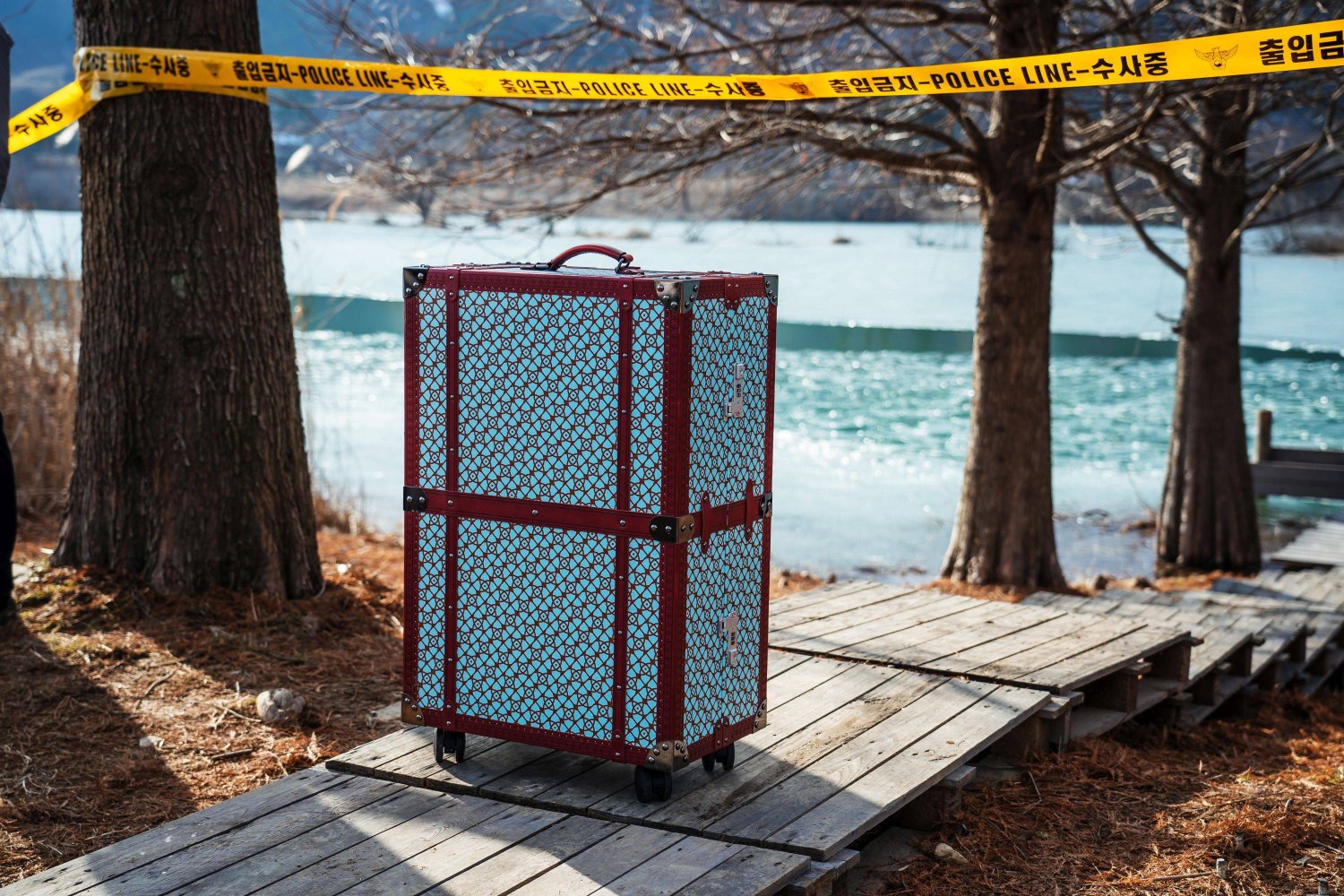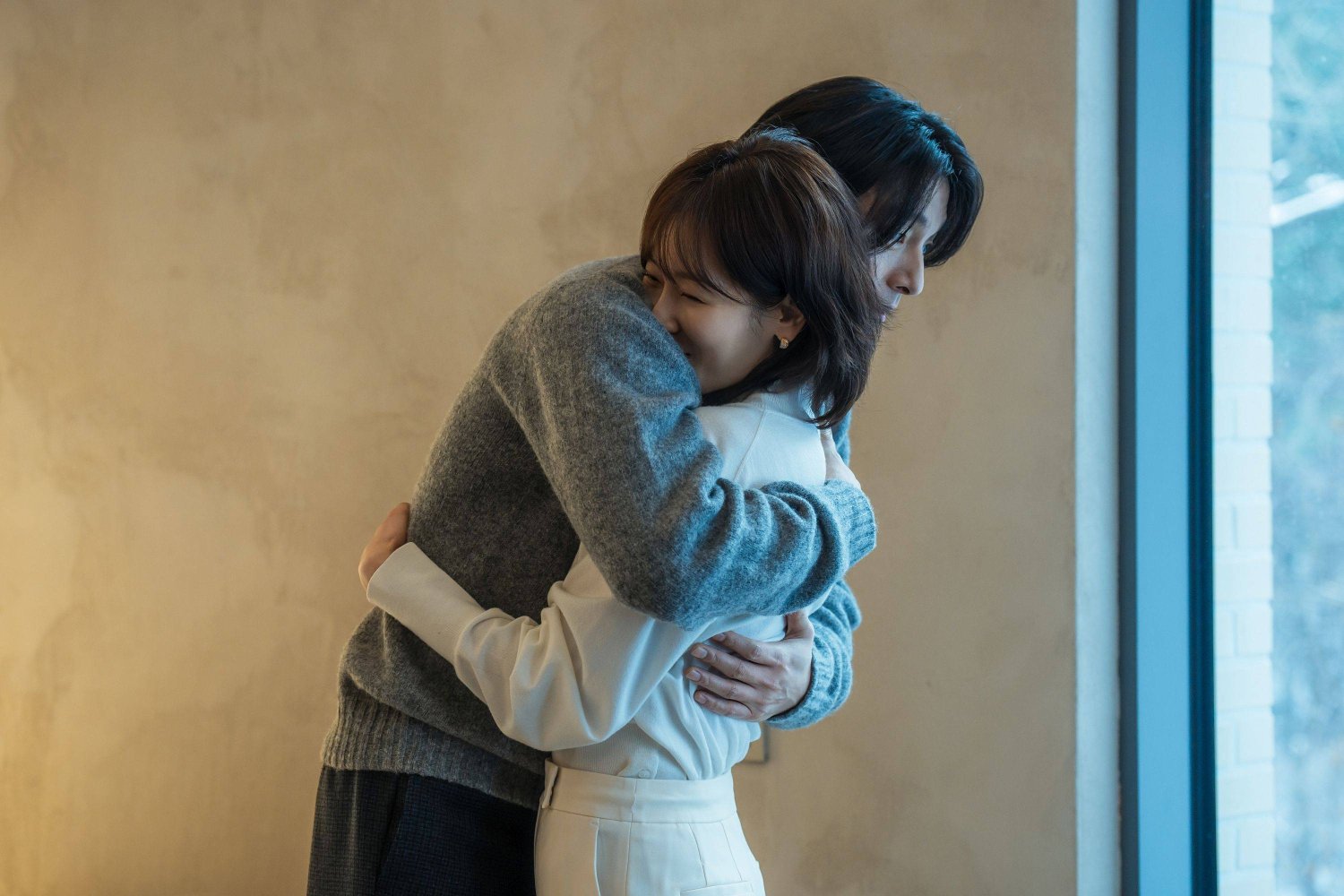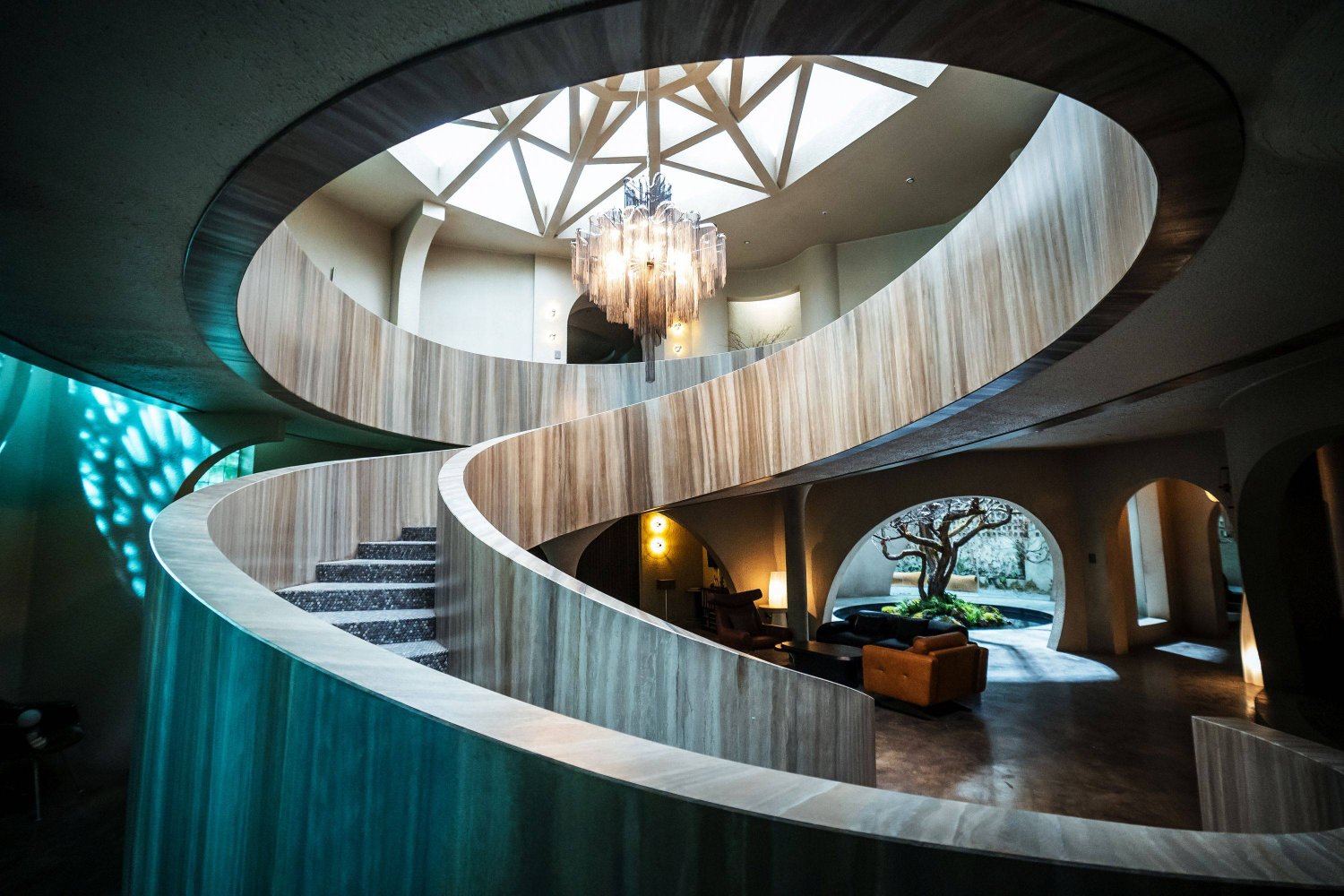The trunk in the title is a luxury item, worth 50 million won – just north of £27,000 – shown sinking in deep water in the opening credits. It weaves through one of the classiest recent collaborations between Netflix and Korean TV, a haunting psychological drama that’s balm to the soul after the mob-handed violence on offer here at home.
Slugging it out in The Trunk are two alpha females, in a setup that on paper sounds like something out of Black Mirror. The motor of the plot is futuristic: NM, a clandestine contract marriage service, socially a no-no for high-status people. In essence, NM offers a corporatised version of the arranged marriage, supplying partners and supervising all aspects of its clients’ marriages, including their divorces, and disposing of any undesirables impeding their happiness. Its serene female CEO thinks the business arrangements she offers lead to a “purer” kind of marriage. It’s an interesting tool for exploring the viability of modern matrimony (pictured below, the trunk).
 One of NM’s best workers is Noh In-ji (Seo Hyeon-jin), a trim woman in her thirties who has entered into four marriages for the company, two with terminally ill men. We see her watch the fourth husband die, leave her wedding ring in the hospital loos and take a kayaking break before returning to NM for her next client. She is crisp and calm, fully versed in her duties, and practised in jujitsu too, handily.
One of NM’s best workers is Noh In-ji (Seo Hyeon-jin), a trim woman in her thirties who has entered into four marriages for the company, two with terminally ill men. We see her watch the fourth husband die, leave her wedding ring in the hospital loos and take a kayaking break before returning to NM for her next client. She is crisp and calm, fully versed in her duties, and practised in jujitsu too, handily.
Her fifth husband is Han Jeong-won, a multi-millionaire composer of horror film soundtracks (Gong Yoo), a man steeped in melancholy who has only agreed to a one-year contract marriage because his wife will deny him any kind of contact with her if he doesn’t. She is a ballsy architect, Lee Seo-yoon (Jung Yun-ha), who has set herself up with a young stud husband through NM to pass the time pleasantly until she has tamed her ex.
We are presumably in Seoul, though in a couple of small, claustrophobic corners of it, with side trips to a nearby lake. Han is like a bagatelle ball, pinging around within the confines of his lonely life and popping pills that lead him into fights. He’s a driven noir character, but also a typical K-drama leading man, motherless and tortured by guilt at her suicide when he was 17. His hated wife-beating father is dying in hospital. His new wife turns out to have demons of her own, mostly because five years earlier her marriage was called off when the groom was outed as bisexual by an anonymous online campaign, and he fled. She has lived in his flat ever since, partly as a form of revenge, partly hoping he will return there. The setup is the stuff of many a trad romcom, the stranger-couple slowly warming to each other as they discover common likes and dislikes (here, both hate tomatoes; she loves watching the Premier League late at night, he doesn’t). She helps ease his insomnia, makes him smile occasionally, while keeping strictly to the rules in “the manual”. He has opted for a “discreet” marriage, so she has a lot of freedom, though they are required to share a bedroom, if not a bed.
The setup is the stuff of many a trad romcom, the stranger-couple slowly warming to each other as they discover common likes and dislikes (here, both hate tomatoes; she loves watching the Premier League late at night, he doesn’t). She helps ease his insomnia, makes him smile occasionally, while keeping strictly to the rules in “the manual”. He has opted for a “discreet” marriage, so she has a lot of freedom, though they are required to share a bedroom, if not a bed.
But the stakes here are deadly serious, especially when it becomes clear that Han’s ex is a spiderwoman who needs to control every element of his life. “Ask my wife how broken I have to be to want her back,” Han says in despair to Noh, who is quick to realise that Lee is conniving and cruel and not above giving her ex dangerous medication to keep him under her cosh.
Noh’s own brokenness grows increasingly obvious. She has had a stalker for five years, recently released from a mental hospital; and she lives with the guilt of a close friend’s suicide, an orphan she wasn’t with the day she killed herself. She even suspects her own mother of having killed her disgraced fiancé.
The plot takes some concentration as it snakes around, flashing back as far as Han’s childhood, but also forward to the police inquiries when a body is found in the lake. In the present-day, though, the bond between Han and Noh strengthens, in gratifying ways. The battle between Han’s two wives, meanwhile, moves from brutal bitchiness to satisfying fisticuffs. Making this odd mix so beguiling is the classy style of the production. Its soundtrack is delicately eerie, with touches of traditional percussion for the main theme and a lovely tango piece on guitar as a leitmotif for Noh, an expert dancer. Visually, it’s intriguing too, much of it taking place in Han’s designer home (pictured above), which looks like Le Corbusier’s version of a Hobbit house, all rounded lines. Dominating the interior are a sweeping staircase and an oppressive chandelier that looks like a monstrous sea anemone. But it’s also a gloomy prison with inadequate indoor light. The chandelier had been used by Han’s father for secretly installed CCTV cameras, to keep tabs on his increasingly crazy wife. Han has nightmares about the light watching him.
Making this odd mix so beguiling is the classy style of the production. Its soundtrack is delicately eerie, with touches of traditional percussion for the main theme and a lovely tango piece on guitar as a leitmotif for Noh, an expert dancer. Visually, it’s intriguing too, much of it taking place in Han’s designer home (pictured above), which looks like Le Corbusier’s version of a Hobbit house, all rounded lines. Dominating the interior are a sweeping staircase and an oppressive chandelier that looks like a monstrous sea anemone. But it’s also a gloomy prison with inadequate indoor light. The chandelier had been used by Han’s father for secretly installed CCTV cameras, to keep tabs on his increasingly crazy wife. Han has nightmares about the light watching him.
The acting here is first-rate. Gong Yoo, popular star of Coffee Prince (2007), is a magnetic, mature presence, even at his most neurotic, his eyes impossibly grief-stricken. The blend of his sadness with Noh’s desire to help him is poignant. Is her care solely by the book? Behind her impassive mask-like face you can see the brain cells working overtime; she’s also impressively brave, fiercely confronting her crazy stalker (a brilliant turn from Kim Dong-won).
There are no easy options here, no automatic romantic developments once Han and Noh recognise they have feelings for each other. Everything is hard won, and all the more satisfying for it. Unusually, Han dreams of being half of a boring couple living a routine life, and loving it. The resolution of the story is perfectly pitched, heartfelt without any hint of melodrama; in its depiction of people tackling grief and trauma, it’s even uplifting. You may want to watch it all over again.















Add comment